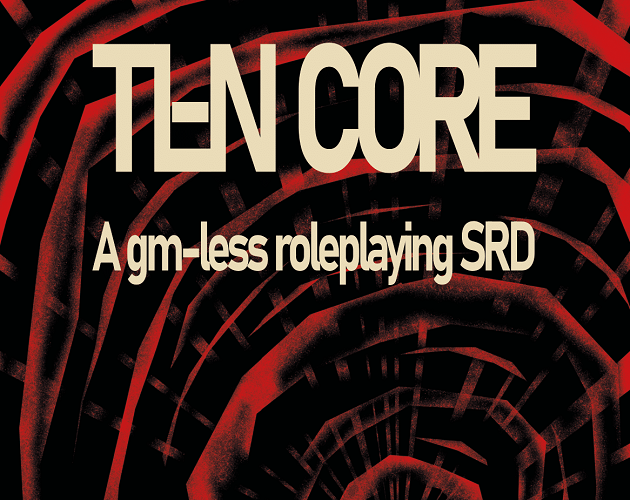Intention
TL-N Core was designed to be a game with simple rules that allowed the players to create virtually any kind of character and narrate any kind of situation. It is also intended to give the players freedom to create not only their own characters, but all other characters and challenges, and the rules of the game itself.
Thus, it is also a framework for the creation of roleplaying games, which may be solo, gm-less, or more traditional guided games; and which may range from games with a more open-ended character creation process to games with predefined attributes, and maybe even classes.
The games created with this SRD may also use dice or be diceless, have more or less randomness on tests, be more or less dangerous and lethal to the player characters, etc. They could even be less narrativist and more traditional by stating that the highest roll on a test simply succeeds, instead of gaining narrative control.
Some could say this SRD is not beginner-friendly, and it really may not be so easy to understand by someone who has never played any roleplaying games before. However, I believe its rules, and the experience they intend to create, are much closer to what newcomers think roleplaying is, in contrast to what the most famous TTRPGs really end up being: waiting for your turn to roll a die to see if your attack hits.
Origins and Inspirations
This game’s principles were taken from the famous anarchist slogan “no gods, no masters”. Anarchism also influenced the idea that the players must reach a consensus in their decisions (which does not necessarily mean unanimity).
The rules of TL-N Core are basically an updated and streamlined version of the rules of the Brazilian TTRPG Tractatus Ludico-Narrativus. The Tractatus was last released alongside a solo supplement, the Narrative Investigations (both with titles and structures inspired by the main works of the philosopher Ludwig Wittgenstein), and some sections of the Investigations were also integrated into TL-N Core.
The greatest changes to the original rules were due to the gm-less nature of TL-N Core, while the Tractatus presupposed a narrator, and the Investigation offered options for solo or gm-less cooperative games. Of course, one can easily use the rules of TL-N Core to play with a gamemaster.
Just like the game it is based on, TL-N Core’s main inspirations are Risus, by John Ross, as well as some of the games by John Wick, especially Blood & Honor, and some of the games by John Harper. Christopher Kubasik’s Interactive Toolkit was also a great influence on this game.
Most recently, Cezar Capacle’s games, especially Push and Kismet, have been a great source of inspiration, like many other games from the Latin American RPG community, for instance, here, there, be monsters! by wendi yu.


